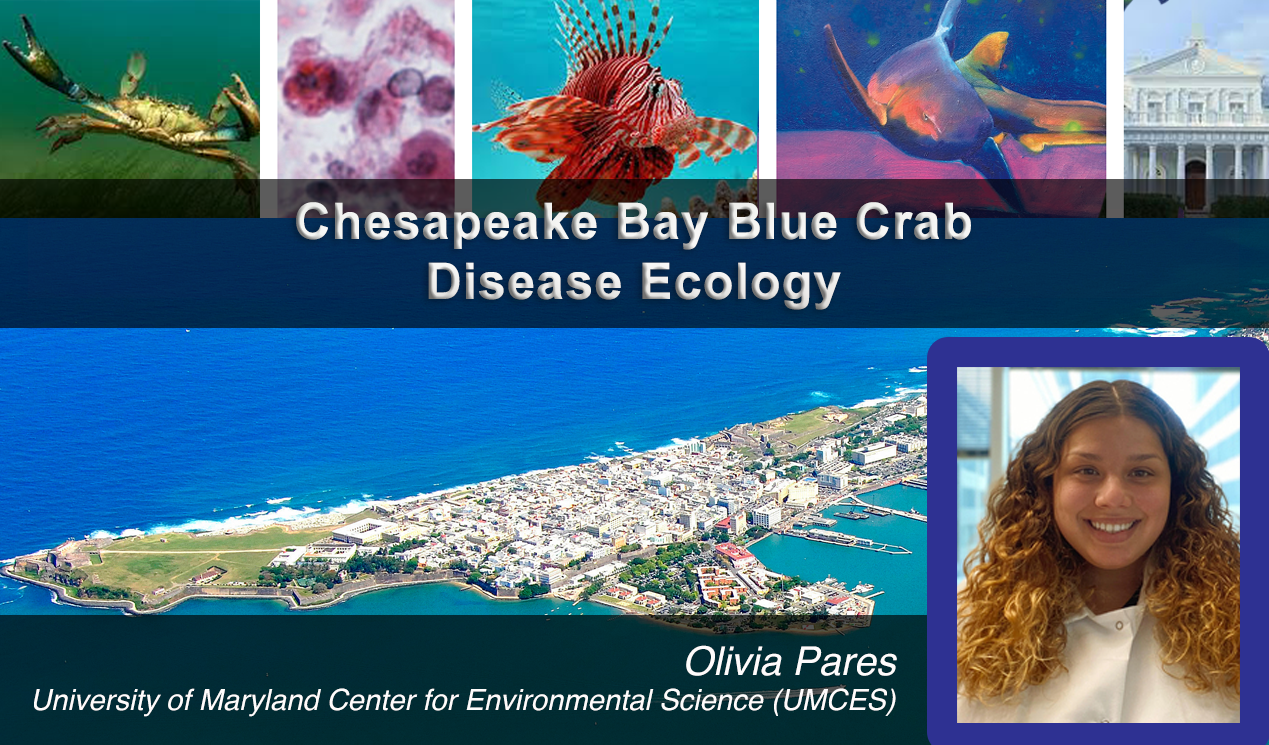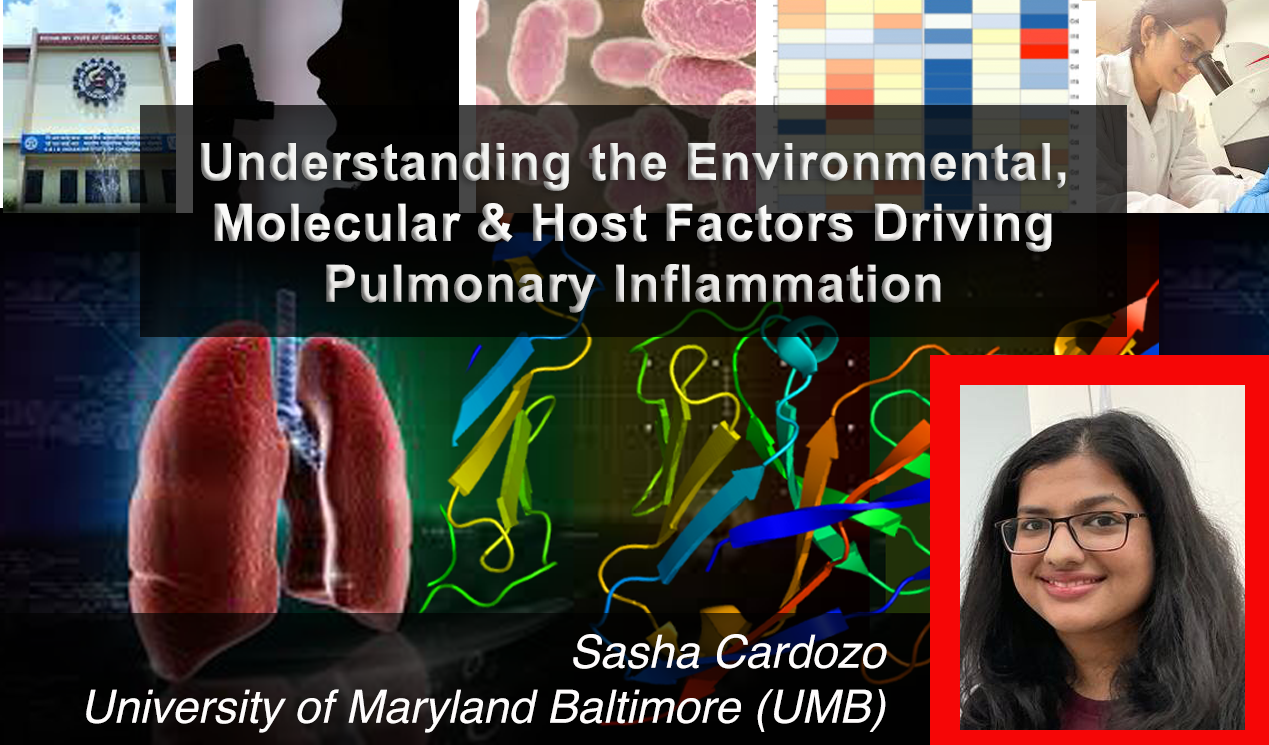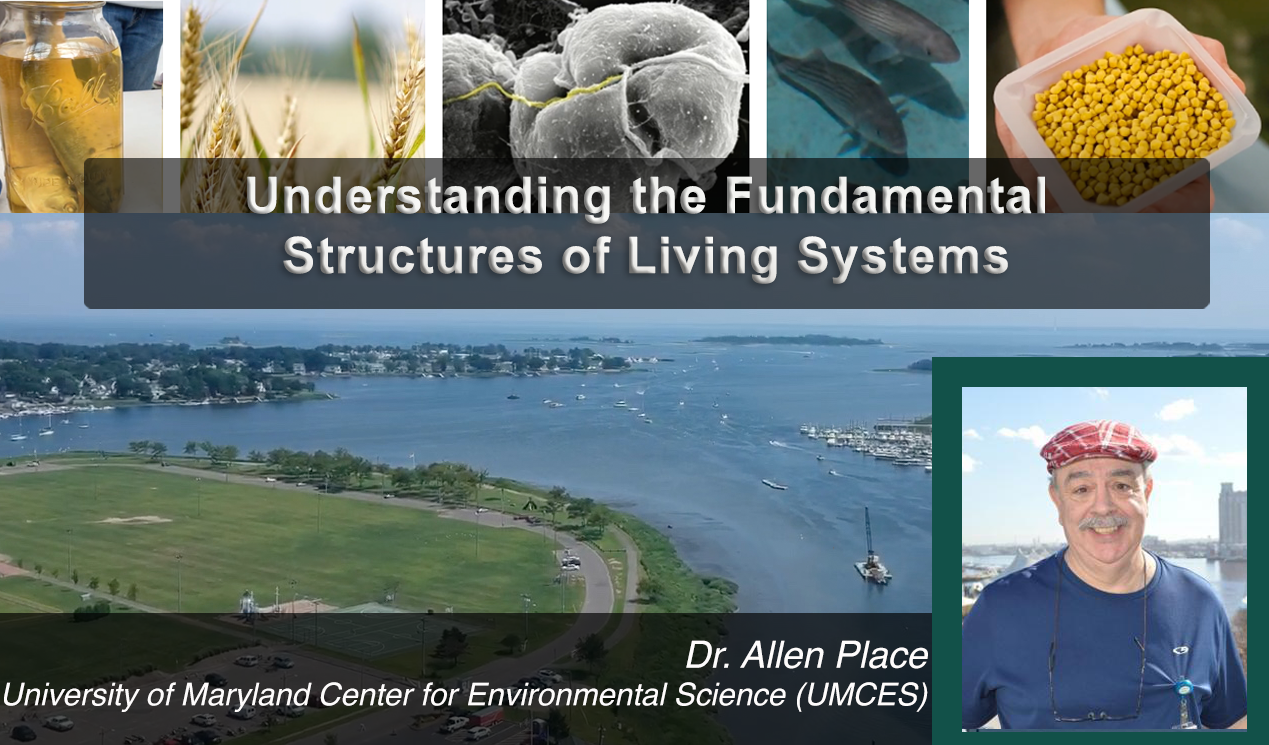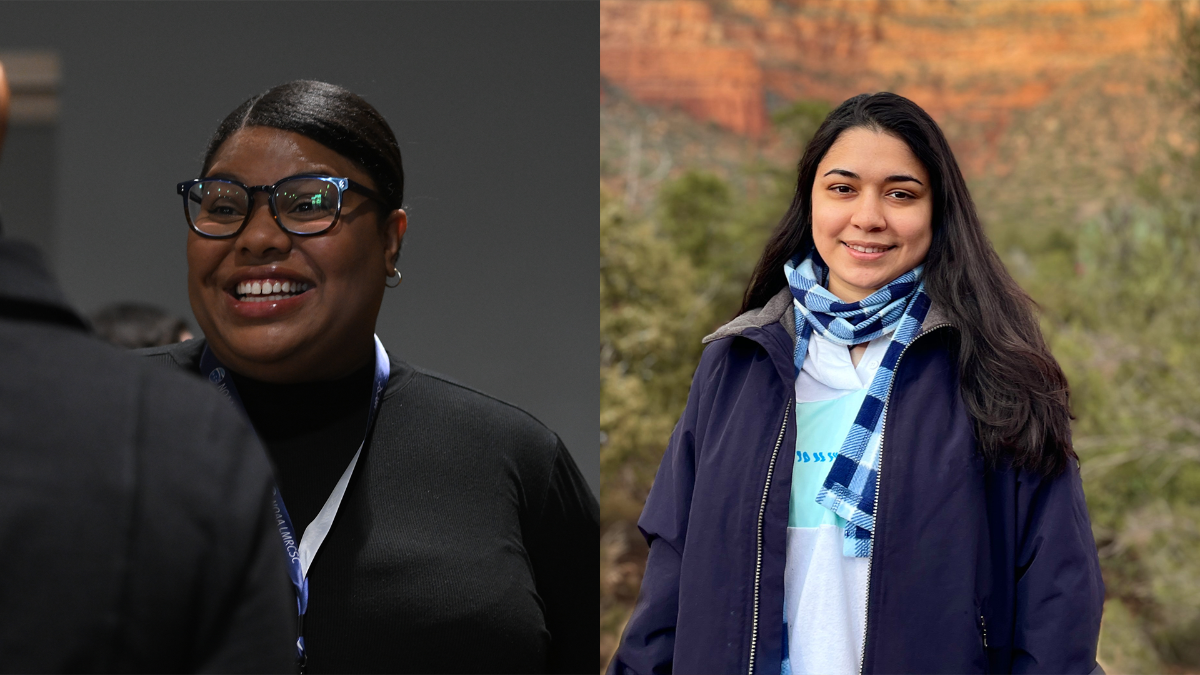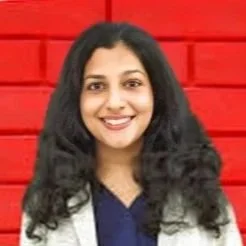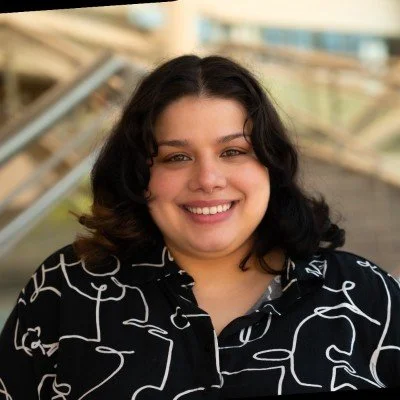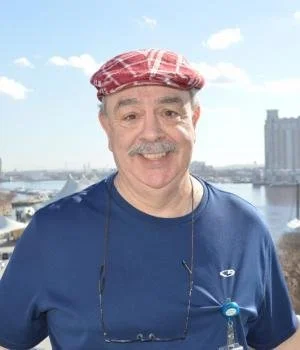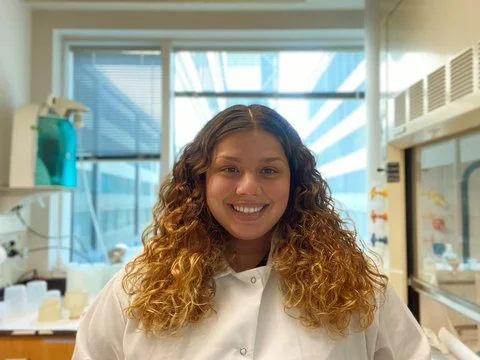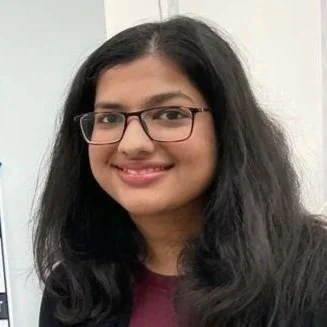MEES IN THE NEWS
january 2026 - foundation spotlight: environmental molecular science & Technology (EMST)
NEWS ARCHIVE
congratulations to the 2026 Scott B. Gudes Public Service Graduate Scholarship
in Marine Resource Conservation RECIPIENTS
From Left to Right - Kayland Huckaby, Veronica Lucchese Photo Courtesy: LMRSCS/UMES
KAYLAND HUCKABY (PH.d, UMES)
VERONICA LUCChESE (Ph.D, UMCES)
February 3, 2025 - Congratulations to our very own MEES doctoral students Kayland Huckaby (UMES) and Veronica Lucchese (UMCES) who are the 2026-2027 Scott Gudes scholarship recipients! According to the announcement, this scholarship, which has awarded five scholarships since 2017, is awarded to a master’s or doctoral student pursuing a degree in a NOAA Fisheries related discipline whose research has a strong potential to contribute to the advancement of marine resource conservation and who has played an exemplary role in public service. Among the five eligibility requirements, students must: be a full time graduate student conducting research relevant to marine resource conservation at LMRCSC, maintain a a cumulative GPA of 3.5, and have demonstrated scholastic and leadership achievements.
Veronica Malabanan Lucchese (‘22, EHS) is a fourth year doctoral (Ph.D.) MEES graduate program candidate and NOAA-LMRCSC Fellow II researching methods to strengthen the management of both invasive and native fisheries in the Chesapeake Bay. Advised by Dr. William Dennison (UMCES), Veronica is based at the University of Maryland Center for Environmental Science and has a passion for the life sciences, environmental justice, and community engagement. For more information on Veronica, please click here.
Kayland Huckaby, (‘22, E&O), advised by Dr. Paulinus Chigbu, is a doctoral MEES Ph.D. student at the University of Maryland, Eastern Shore and a LMRCSC Fellow working on a collaborative project with NOAA NEFSC dealing with Assessment of Variations in Fatty Acid Composition of Forage Species in the Northwest Atlantic Shelf and Estuaries. The study will be complementary to the NEFSC’s ongoing project on variations in the condition and energy densities of forage species in relation to latitude, season and year in the Northwest Atlantic Shelf. For more on Kayland, please click here.
We at the MEES Graduate Program extend our congratulations to both Kayland and Veronica; this is a well earned recognition of your dedication & hard work! The MEES program is very proud of our exceptional and bright students!
ALUMNI CORNER
MEES RESEARCH CENTER
Sasha Cardozo Photo Courtesy: Kalinga Institute of Industrial Technology (KIIT)
Sasha Cardozo (‘22, Ph.D.) is a third year MEES doctoral candidate at the University of Maryland Baltimore (UMB) based at the Institute of Marine and Environmental Technology (IMET). Under the advisement of Dr. Ciaran Skerry, Sasha’s doctoral research focuses on understanding the key mechanisms driving pulmonary inflammation, a hallmark of pertussis (whooping cough), a highly contagious pulmonary disease caused by the bacteria Bordetella pertussis.. Sasha aims to develop novel pertussis therapeutics and interventions by analyzing the contribution of environmental, bacterial and host factors that exacerbate disease outcomes in responses to pertussis.
Olivia Pares
Olivia Pares (‘25, Ph.D.) graduated with her doctoral degree in MEES this past Fall 2025 at the University of Maryland Center for Environmental Science (UMCES) based at the Institute of Marine and Environmental Technology (IMET). Under the advisement of Dr. Eric Schott, Olivia’s doctoral research focused on the disease ecology of a pathogen called Callinectes sapidus reovirus I (CsRV1) that only infects the Chesapeake Bay blue crab. Following earning her doctoral degree in MEES, Olivia is now completing her post-doctoral fellow at the Smithsonian Environmental Research Center (SERC) conducting research on further understanding CsRV1’s host range.
understanding the fundamental structures of living systems
dr. allen Place (UMCES)
Dr. Allen Place Photo Courtesy: UMCES
Dr. Allen Place is a biologist, chemist, and Professor at the University of Maryland of Environmental Science (UMCES). Dr. Place is also the Associate Director for Research, Director of the US Harmful Algal Bloom-Control Technologies Incubator (HAB-CTI) and Director of the BioAnalytical Services Laboratory (BASLab) based at UMCES’ Institute of Marine and Environmental Technology (IMET) in Baltimore, MD. Dr. Place, a long time MEES faculty member is most known for his research on the fundamental structures and functions of living systems, addressing three key research areas: fine-tuning enzyme function to adapt to the environment, investigating biochemical adaptations for utilizing unique food sources, and elucidating mechanisms governing sex determination.
Dr. Place has received numerous academic awards, including the UMBI Regent’s Award Candidate for Research/Scholarship/Creative Activity - 2005, 2008, the UMBI Regent’s Award Winner for Public Service – 2009, and the UMCES President’s Award for Excellence in Application of Science in 2012. A native of Norwalk, Connecticut, Dr. Allen R. Place received his B.A. and subsequently his Ph.D. from The Johns Hopkins University, in Baltimore, Maryland beginning his work with the University of Maryland Biotechnology Institute (now the Institute of Marine and Environmental Technology (IMET)) in Baltimore, Maryland in 1987. He has been in his current position as Professor for UMCES at IMET for over twenty years (2001) and has mentored many MEES graduate students. Dr. Place has also instructed many key MEES courses, including being the co-instructor for the Environmental Molecular Science and Technology (EMST) Foundation course: MEES 680, and a MEES independent study group (ISG) course on iron addition to the ocean (MEES 718L). His approach to biological research has always crossed traditional boundaries with a strong conviction in the "comparative approach", be it at the molecular, cellular, or organismal level. In essence, his laboratory war cry is “Research Without Boundaries.” The central question which drives his research is: "What are the fundamental structures and functions of living systems that can be adaptively modified to allow an organism to exploit the diversity of habitats we observe in nature?" In 1997, the Chesapeake Bay and its rivers experienced a large-scale algae bloom which was blamed for killing large numbers of fish and sickening humans. Dr. Place and his research team set out to study the algae species (Pfiesteria) of interest and another algae, Gyrodinium galatheanum (now called Karlodinium veneficum). The researchers found that Karlodinium appeared more toxic than Pfiesteria, leading Place and his team in further studies to suspect that Karlodinium was actually the real culprit. In 2022, Dr. Place gave a presentation highlighting this study along with others for the Association for the Science of Limnology and Oceanography entitled “Mixotrophy in Dinophycese Brothers in Arms” (link). For the past twenty five years, Dr. Place has researched microscopic algal cells blooms at the Place laboratory in Baltimore; tracing the algae's natural production of a unique polyketide toxin (amphidinol) whose absolute structure has yet to be determined, but have been discovered to possess intriguing antifungal, cytotoxic, or cancer fighting, and hemolytic, or blood restorative, properties. Dr. Place was Vice-Chairman for the June 2017 Gordon Research Conference, Mycotoxin and Phycotoxin and Chair for the June 2019 Gordon Research Conference, Mycotoxin and Phycotoxin. For more information on Dr. Place, please visit the Place laboratory website here.
chesapeake bay blue crab disease ecology
olivia pares (Ph.D. ‘25)
Olivia Pares Photo Courtesy: UMCES
Olivia Pares (‘25, Ph.D.) graduated with her doctoral degree in MEES this past Fall 2025 at the University of Maryland Center for Environmental Science (UMCES) based at the Institute of Marine and Environmental Technology (IMET). Under the advisement of Dr. Eric Schott, Olivia’s doctoral research focused on the disease ecology of a pathogen called Callinectes sapidus reovirus I that only infects the Chesapeake Bay blue crab. According to a recent survey by the Virginia Institute of Marine Science and the Maryland Department of Natural Resources, the blue crab population in Maryland's Chesapeake Bay is currently among the lowest it's been in over 35 years. Blue crabs are vital for the Chesapeake Bay coastal region as a keystone species acting as crucial predators for other shellfish and essential prey for fish, bird, and turtles supporting significant commercial and recreational fisheries. The blue crab species also serve as reservoirs for the virus; organisms that can be infected and transmit the virus, but do not die from the virus. Olivia’s doctoral research aims at also testing whether other crabs from the Callinectes genus can be experimentally infected with the virus. Understanding the factors that influence the prevalence of the pathogen can help with blue crab fishery management and inform biosecurity strategies.
Prior to joining the MEES graduate program, Olivia attributes her curiosity and love for the environment from her childhood experiences on her grandfather’s plantain farm on top of a green mountain in Puerto Rico, where she would collect tadpoles and learned how to harvest from plants growing on the small patch of land. Olivia fondly remembers seeing fish and collecting sea shells on visits to the beach, and how her grandfather taught her how to make a makeshift water filter. This early exposure to self-reliance, Olivia recalls, provided her insight into the importance of conservation and fueled a curiosity to understand the environment.
Her passion led her to matriculate into the Universidad del Sagrado Corazón (Sacred Heart University) Biology department studying the ecology, management, control of Pterois volitans (red lionfish), a venomous coral reef fish native to the Indo-Pacific region, but has become an invasive species in the Caribbean Sea, as well as along the East Coast of the United States. Under the advisement of Dr. Rolando Guzman, Olivia implemented and executed a study exploring the pharmacological applications of the venom from Pterios sp, populations in the San Juan Bay presenting the results at the Puerto Rico Louis Strokes Alliance for Minority Participation and the American Chemical Society (2016). Olivia also worked as a teaching assistant for a cellular biology class assisting in setting up the labs for student classes, maintaining cell lines, lab cleanup and tutoring students. Following her graduation with a bachelor’s in Biology from the university in 2017, Olivia relocated to Maryland and started working as a laboratory technician at Flavors and Fragrance Specialty manufacturing company, and then promoted to Analytical Chemist efficiently addressing all quality issues with incoming raw materials and outgoing finished products. Olivia matriculated into the MEES graduate program as a Master’s student in Fall 2019, receiving funding through a NOAA Living Marine Resource Cooperative Science Center (LMRCSC) grant turning her focus to the life-history traits of C. sapidus (blue crab) and Callinectes spp. in tropical climates. After only a year, her research expanded and Olivia switched her degree objective to the doctoral program under the advisement of Dr. Eric Schott, to then investigate different aspects of the species and to understand how different climates affect blue crabs, specifically those in Puerto Rico. According to a recent study by VIMS and MDE, the population of blue crabs has experienced a 25% drop since 1990. Olivia’s research aims to understand not only the life history of the crab including the timing and size of offspring and growth rates, but also the reovirus Callinectes sapidus reovirus I, or CsRV1, only infects the Chesapeake blue crab, and testing whether other crabs from the Callinectes genus can be experimentally infected with the virus. This research aimed to provide valuable insights for developing effective biosecurity measures and sustainable fisheries management practices, ultimately supporting the resilience and economic stability of crustacean fisheries globally. Olivia earned her doctoral degree in MEES in Fall 2025, and is now completing her post-doctoral fellow at the Smithsonian Environmental Research Center (SERC) conducting research on further understanding CsRV1’s host range. For more information on Olivia, please check out her personal website, where she showcases unique science-based artwork, which aims to highlight the intricate beauty and significance of the organisms scientists study here.
MEES RESEARCH CENTER
Understanding the Environmental, molecular & host factors driving pulmonary inflammation
sasha cardozo (‘22, Emst)
Sasha Cardozo Photo Courtesy: UMCES/IMET
Sasha Cardozo (‘22, Ph.D.) is a third year MEES doctoral candidate at the University of Maryland Baltimore (UMB) based at the Institute of Marine and Environmental Technology (IMET). Under the advisement of Dr. Ciaran Skerry, Sasha’s doctoral research focuses on understanding the key mechanisms driving pulmonary inflammation, a hallmark of pertussis (whooping cough), a highly contagious pulmonary disease caused by the bacteria Bordetella pertussis. Characterized by severe spasmodic coughs and primarily affecting children, pertussis infects over 24.1 million people annually, with antibiotics being ineffective unless administered before the onset of disease-specific cough symptoms. Sasha aims to develop novel pertussis therapeutics and interventions by analyzing the contribution of environmental, bacterial and host factors that exacerbate disease outcomes in responses to pertussis.
Prior to joining the MEES doctoral program, Sasha earned a dual degree (B.Tech/M.Tech) in Biotechnology from the Kalinga Institute of Industrial Technology (KIIT) in Bhubaneswar, India in 2021. While at KIIT, under the supervision of Dr. Maitreyi Bandhypadhyay, Sasha interned at the R.G Kar Medical College and Hospital, working on the antibiotic sensitivity testing of wound bacteria and the growth-temperature curve analysis of bacterial isolates in leachate samples respectively. Sasha attributes these hands-on experiences in recombinant protein expression along with performing other biochemical and immunohistochemistry techniques as benchmarks to sparking her interest in microbiology and protein biochemistry; which led her to her Master’s thesis work on the Type III secretion system in Yersinia enterocolitica a Gram-negative, animal-borne disease occurring in humans, many of these animals recover from the disease and become carriers; potential sources of contagion. After graduating with her Master’s, Sasha’s research interests expanded to host-pathogen interactions and antimicrobial resistance which led her to the MEES doctoral program under the advisement of Dr. Ciara Skerry at the University of Maryland Baltimore (UMB) in Fall 2022. Sasha’s doctoral research focuses on understanding the key mechanisms driving pulmonary inflammation, with preliminary data suggesting an amplifier of inflammation may activate pro-inflammatory genes in the innate immune system. Sasha’s long-term academic goal is to work within the academic community, addressing important questions in the field, and produce original research. For more information on Sasha, please click here.
